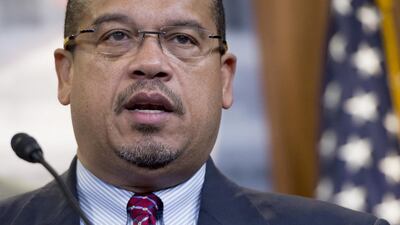America’s Democrats went into this year’s election knowing that both political parties faced real challenges. Republicans had fostered a radical populist movement they had intended to use to oppose Mr Obama but which, in the end, turned on the GOP and devoured their establishment. Donald Trump’s victory may, for a time, serve to mask this internal crisis, but it will no doubt resurface soon.
As the candidacy of Bernie Sanders demonstrated, Democrats also faced an internal challenge. Many Democrats had lost confidence in their establishment. Because he was authentic and had a powerful economic message that spoke to the realities faced by young and working-class voters, Mr Sanders won the trust of those who had given up on politics and the Democrats.
The postmortems I have read analysing the Democrats’ loss of 2016 require that the party face its problems head on. There must be changes in message, structure and leadership.
In fact, the party is undergoing just such an intense internal debate, asking questions such as: how will the party elect its presidential nominee? How will the national party be structured and relate to state parties? What will the message of the party be? And, most immediately, who will serve as the next chair?
I’ve been a member of the Democratic National Committee for 25 years, serving on its executive committee for more than a decade and a half. I have had the privilege of working with some extraordinary people. It was chairman Ron Brown who projected a powerful economic message that paved the way for victory in 1992 (he was also the first chair to welcome Arab Americans into the party). Don Fowler launched the ethnic council. Terry McAuliffe forcefully responded to the post-9/11 backlash against Arab and Muslim Americans. When Roy Romer was chair, he articulated what it meant to be a Democrat. It was Howard Dean who understood that the party needed to be strong in every state and Tim Kaine who made a determined effort to deliver an authentic message of inclusion.
Despite the efforts of these leaders, the party lost its way. It lost touch with working class voters and focused its message, instead, on a litany of progressive social causes. Democrats were right to attend to these issues, but were wrong to have forsaken their traditional economic programme. It was a mistake to have seen these two agendas as competing or mutually exclusive. For the party to become a force again, it needs to project a message that unites “class and race” and elect a leader who can carry that message to voters.
I will be supporting Keith Ellison for chair in 2017. I have known Mr Ellison for many years. He is a passionate advocate for working people. He has a vision that is both inclusive and progressive.
There are, to be sure, those who have opposed Mr Ellison. The most vocal opponents have posited that because he has been supportive of Palestinian rights and has been critical of Israeli policies, he should be disqualified from consideration. His defenders argue that his views are balanced and well within the mainstream of the Democratic consensus. More than that, the very fact that Mr Ellison has been an honest voice for Israeli-Palestinian peace has made him appealing to disaffected millennials who are looking for real leaders.
There are also critics who have said that, as an African-American Muslim, Mr Ellison is the wrong face for a party that needs to win back support from the “white working class”. This argument is, at best, wrong-headed and, at worst, insidious.
Democrats didn’t lose the support of the white working class because of the race of the messenger. Rather it was because the party wasn’t advocating a message that spoke to the needs and concerns of this disaffected group of voters. In his congressional campaigns, Mr Ellison has consistently appealed to and won the support of a cross-section of voters.
I remember when I first met Keith we had a long conversation about his politics and his faith. What I found fascinating about his views were the degree to which they tracked my own. I am a Jesuit-trained Catholic whose politics are shaped by the Christian social gospel message. While I don’t wear my faith on my sleeve, the values derived from it infuse my commitment to the poor, the outcast and those in need who cannot help themselves. As I listened to Mr Ellison describe his political philosophy, I heard echoes of this same compassion and responsibility. These were his values and this was how his faith directed his action.
We have also talked over the years about the Democratic party’s need: to restructure and reform, to build sustainable groups in every state, to revitalise the Democratic National Committee so that it makes better use of the talent and experience of its extraordinary grass roots membership and, finally, to reform how we chose our national candidates.
The party needs to change and Mr Ellison understands that. A good place to start would be to elect him as chair.
Dr James Zogby is president of the Arab American Institute
On Twitter: @aaiusa


